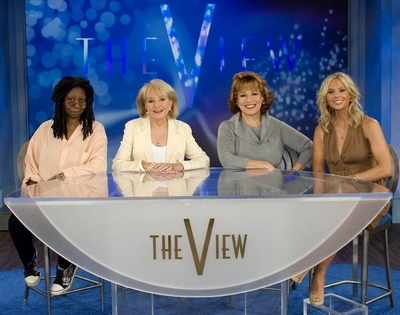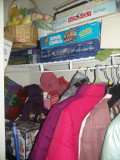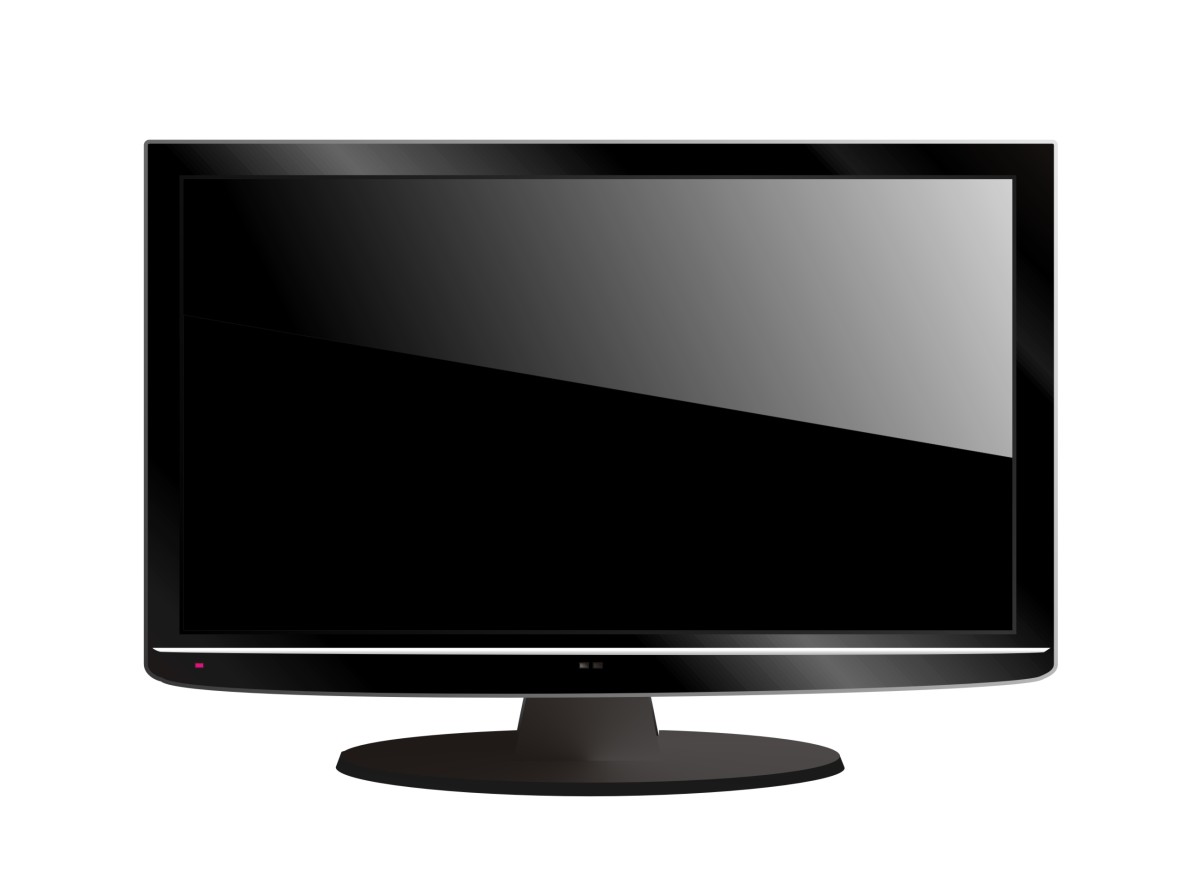Television Discussion: Television and our Daily Lives
There are two types of American audiences when it comes to daytime talk shows; those who like to see trouble, and those who like to see trouble in the process of being resolved. However, both audiences have one obvious, yet striking, similarity; they find entertainment in seeing trouble in general, or, more appropriately, they find entertainment in the humiliation and heartache of their fellow man. If this is the case, where do modern talk shows fall in the role of maintaining their audience, and what role do they play in the collective psyche of America?
Steven D. Stark's article "The Oprah Winfrey Show and the Talk-Show Furor" from his book "Glued to the set: The Sixty Television Shows and Events that Made us what we are Today" eloquently describes the evolution of talk shows in our apparently devolving society. There are two categories of daytime talk shows. There are the kind that tries to assist others and resolve problems, much like the Oprah Winfrey Show, and the kind that likes to bring problems out into the open while not necessarily resolving anything in particular, like the Jerry Springer Show. The former category will be the focus of this Hub.
Stark brings out his point by saying quite flatly that "[These kinds of shows are] purported to offer group therapy for the masses, at a price everyone could afford" (Solomon and Maasic 267). Indeed, these shows mimic the psychotherapy portion of our existence, administered by pseudo-psychotherapists with, sometimes, no experience at all. What, then, would be the effect of people counseled by an untrained counselor? Could this event, perhaps, be doing more harm than good, and, if so, where are the effects showing up?
Could it be that by seeing someone on television, apparently normal, who has such problems reflect an idea that: "Perhaps my life is not as bad as the rest of the world's after all", or adversely, "If this is normal, my life doesn't fit the category; perhaps I need to appear on one of these shows," If the latter is the case, the talk-show industry may well be a sort of self-fulfilling prophecy, so to speak; with its participants being wooed into participating by seeing the results, positive or negative, of others who have appeared on the show previously.

There are three different styles of talk-show television. The first style that will be illustrated is the "Sympathetic Help" standpoint of daytime talk-television. The Oprah Winfrey Show is a sure example of this standpoint on 'how to do daytime television'. Oprah's television show begins, on September 11, 2007, with a tear-jerking stage filled with candles; followed up by Oprah herself stating that each point of light is in memory of one life lost on that fateful day six years prior.
She decides to talk with a few of those who have lost their parents in the attack. She begins with the question: "Does it ever get easier?" Right from the start, she asks the hard questions, but always with a solemnity of the subject at hand. She does not come across, so much, as a talk-show host, but more as one who cares and has a desire to let the world know what her guests are going through in their lives. Whether or not Oprah is sincere, the show portrays her as a sincere, honest person with the guests' best interest in mind.
But who watches this show? It aired (during the season from which my data comes) at 4:00 PM on weekdays. Children of school-age are off getting an education, and many men work during that time. By that logic, nearly all of the people situated to watch it are women. Not unexpectedly, the commercials for a 'healthier lifestyle', sponsored by Slimfast, of course; a safer home, courtesy of the Slomin's Shield, and a token clothing commercial. This is only too fitting, of course, as these things would certainly be attractive to a concerned mother. And especially so for a concerned mother watching what can happen to people throughout the course of their lives; and not the positive points.

Dr. Phil, on the other hand, combines the caring aspect of talk-show hosting with no regard for 'the bad guy'. Some popular phrases that Dr. Phil has been known to throw around are "This is crap!", "It needs to stop here, today", "I want you to get excited about your life", and "If it's happenin' now, we're gonna deal with it now". Many of those phrases appear during the title reel alone.
I don't want to be in the four o'clock news, I want to get to the heart of it, and get the answers to the questions you want asked."
This is beginning to sound more like an 'advocate of the people', than a talk-show host. If that's the case, America's buying it.
One of the popular shorts on the Dr. Phil Show is something called Man Camp. Man Camp is a sort of 'Big-Brother' type of house that's supposed to teach men to be real men. This seems like a topic that would appeal much more to a woman than a man. Incidentally, this isn't the only a topic that a woman would find easier to relate to.
Dr. Phil's show on September 10th, 2007 held the topic 'texting while driving'. Dr. Phil meets up with a girl named Chelsea who always texts while driving. Chelsea is given all of the statistics about how dangerous it is to text and drive. She fails a computer simulator with terrible results, and even meets up with a person who ran over and killed a man because he was too busy texting while driving to see where he was going. Given this evidence, an average American, it is assumed, would certainly at least attempt to make a change in their actions. Chelsea looks like an average American, and sounds like an average American, but is she? Not every American has physical symptoms of phone withdrawal after being without a cell-phone for an hour - Chelsea does.
This in mind, is the Dr. Phil Show choosing Americans with an extremist view or experience to prove a point? It certainly cannot be taken out of the equation. Through all of this, he fills his audience with a team of people ready to applaud any canny retort against his victi... er... guest. The usual topics are an easy win-over when it comes to mothers. What parent would not agree that 'kids these days' have so many problems? As long as we're not talking about their kids, that is.
"Like all talk shows, daytime talkers rely on the element of unpredictability. There is a sense that virtually anything can happen" (David L. Hixson).
If any talk show exemplifies Hixson's proclaimed frivolity of talk-shows today, it would most certainly be The View. The View is aired live, so anything goes.

In the first seven minutes, the topics of: "Orgasm, illegitimate children, divorce, betrayal, cocaine and 'the perfect brazier" are thrust through the auditory canals, as a daily occurrence. Five women with various backgrounds from Whoopi Goldberg to Barbara Walters host this show. Many times, the women all talk at the same time, making the show hard to follow. However, despite it's non-sequitur, 'nothing is taboo' style, it continues to remain on the air after more than a decade.
Whoopi feels free to quote Jesus while bashing Oprah for selecting a presidential candidate and holding a fundraiser for him. Politics are fair game in this show; however, the advice given is not "pay attention to us". Subconsciously, however, their opinions do matter in the hearts of the American People. That is, of course, if America still has a heart.
Undoubtedly, these shows depict three very different styles of talk-show engineering. But, it may just be that these shows play off each other for ratings and air-time. The View talks about Oprah and, at one point, had Dr. Phil as a guest. If someone watches Oprah or Dr. Phil, they might be more inclined to tune in to The View, just to see what they're saying regarding these two individuals. Similarly, Dr. Phil plays off of the strife of American moms by bringing 'common sense' back to life. Oprah is in her own league, because she is a very powerful woman when it comes to politics; as such, many people would take her word as truth simply because she said it; much like Catholics and the Catholic Pope. But has daytime television truly turned into a religion? Ask the millions of daily viewers. They'd certainly be more than willing to tell you exactly how much of their lives are ruled by talk-shows and the topics discussed thereon.
Works Cited
Hixson, David L. "Daytime Talk Shows." St. James Encyclopedia of Pop Culture.
findarticles.com, 2002, Philadelphia. 09 Sept. 2007 <http://findarticles.com>
Maasic, Sonia, and Jack Solomon. Signs of Life in the USA. 5th ed. Boston, New York:
Bedford/St. Martin's, 2006. 267
"Six Years Later." Oprah. ABC. New York, New York. 11 Sept. 2007.
"Texting While Driving." Dr. Phil. CBS, Los Angeles, California. 10 Sept. 2007.
"The Perfect Bra." The View. NBC. 10 Sept. 2007.









